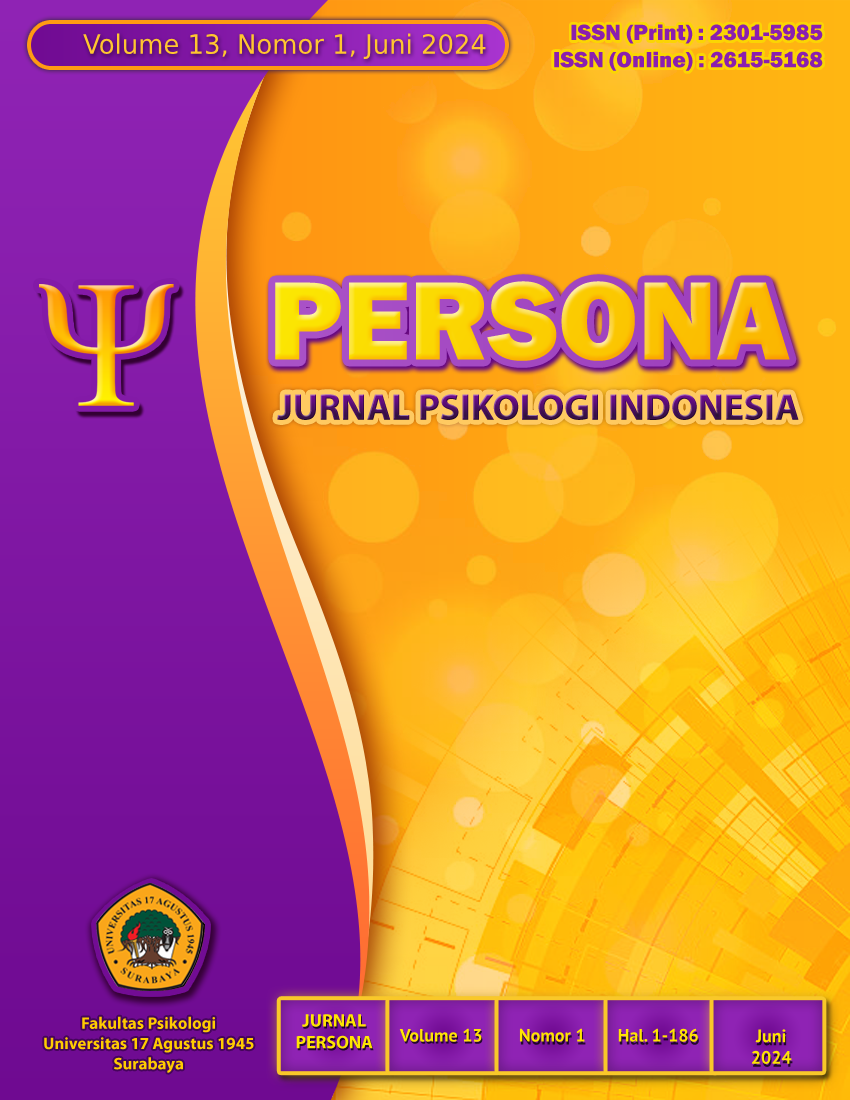Iklim sekolah dan perilaku prososial siswa reguler di sekolah inklusif: Bagaimana peran identitas moral sebagai mediator?
School climate and prosocial behavior of regular students in inclusive schools: What is the role of moral identity as a mediator?
DOI:
https://doi.org/10.30996/persona.v13i1.11281Keywords:
moral identity, school climate, prosocial behavior, regular studentsAbstract
Previous studies have emphasized the influence of the school environment on students' prosocial behavior. However, few studies still concentrate on alternative mechanisms that contribute to developing students' prosocial behavior. This study aimed to investigate how moral identity plays a role as a mediator in the relationship between school climate and students' prosocial behavior in inclusive schools. A cluster random sampling technique was used to select participants. This study included 872 children attending inclusive schools in Surabaya City. The research instrument used a scale of moral identity (α=0.918), prosocial behavior (0.740), and school climate (0.889). Data were analyzed using structural equation modeling (SEM). The study's findings indicate a positive relationship between the overall school climate and the tendency of regular students in inclusive schools to engage in prosocial activities. This relationship is influenced by the role of moral identity as a mediator. These findings enhance our understanding of the importance of moral identity and have practical implications for intervention programs aimed at improving prosocial behavior among regular students in inclusive schools.
Downloads
Downloads
Published
Issue
Section
License
The author who will publish the manuscript at Persona: Jurnal Psikologi Indonesia, agree to the following terms:
1. Authors retain copyright and grant the journal right of first publication with the work simultaneously licensed under a Creative Commons Attribution ShareAlike License that allows others to share the work with an acknowledgment of the work's authorship and initial publication in this journal.
2. Authors are able to enter into separate, additional contractual arrangements for the non-exclusive distribution of the journal's published version of the work (e.g., post it to an institutional repository or publish it in a book), with an acknowledgment of its initial publication in this journal.
3. Authors are permitted and encouraged to post their work online (e.g., in institutional repositories, pre-prints sites or on their website) prior to and during the submission process, as it can lead to productive exchanges, as well as earlier and greater dissemination of published work






